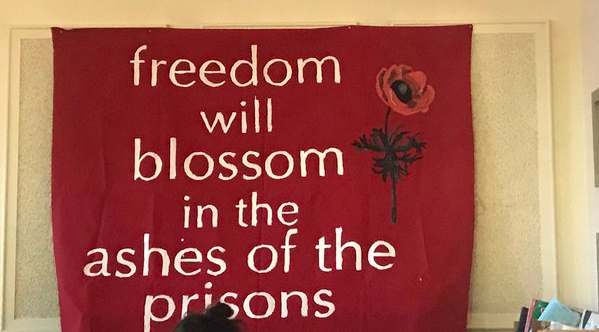from Dreaming Freedom Practicing Abolition

We were in the small block yard. I was talking to another prisoner and suddenly remembered I needed to ask another prison a question. As I walked over to the circle of prisoners he was in, I noticed how animated two of them were. As I reached the circle, one of the two guys turned to me and asked if I had watched Dateline the night before. I hadn’t. He went on to tell me how the topic was the police murder of a young man in West Philly who was experiencing a mental health crisis. I remembered the Wallace case.
The animated discussion was about solutions. One prisoner had suggested the solution offered by the state, equipping all of Philly police with tasers so their encounters could be less deadly, was the right thing. The other prisoner asked: why call the police at all? It was obvious he was winning the crowd over. Another younger prisoner summed up the problem as people not having other options when they experience emergencies. He suggested another number for mental health crisis. Don’t call 911.
I was loving this. None of these men have ever called themselves abolitionists. But they have abolitionist ideas. And only one of the five men in the circle has studied with us.
I wanted to share this because this incident reminds me that:
Sometimes all we have to do is listen. Abolitionist thought is here. People don’t always call it that. But it is abolitionist. Instead of focusing on teaching, we need to listen and learn sometimes.//
More and more people are realizing that things cannot continue the way they are. Something has to change. And people are discussing and looking for answers.//
Practicing abolition means being among the people and listening to them. And being willing to provide support for their growth and transformation.//
Political education is happening behind these walls at all times. It comes in many forms. Will we support it?//